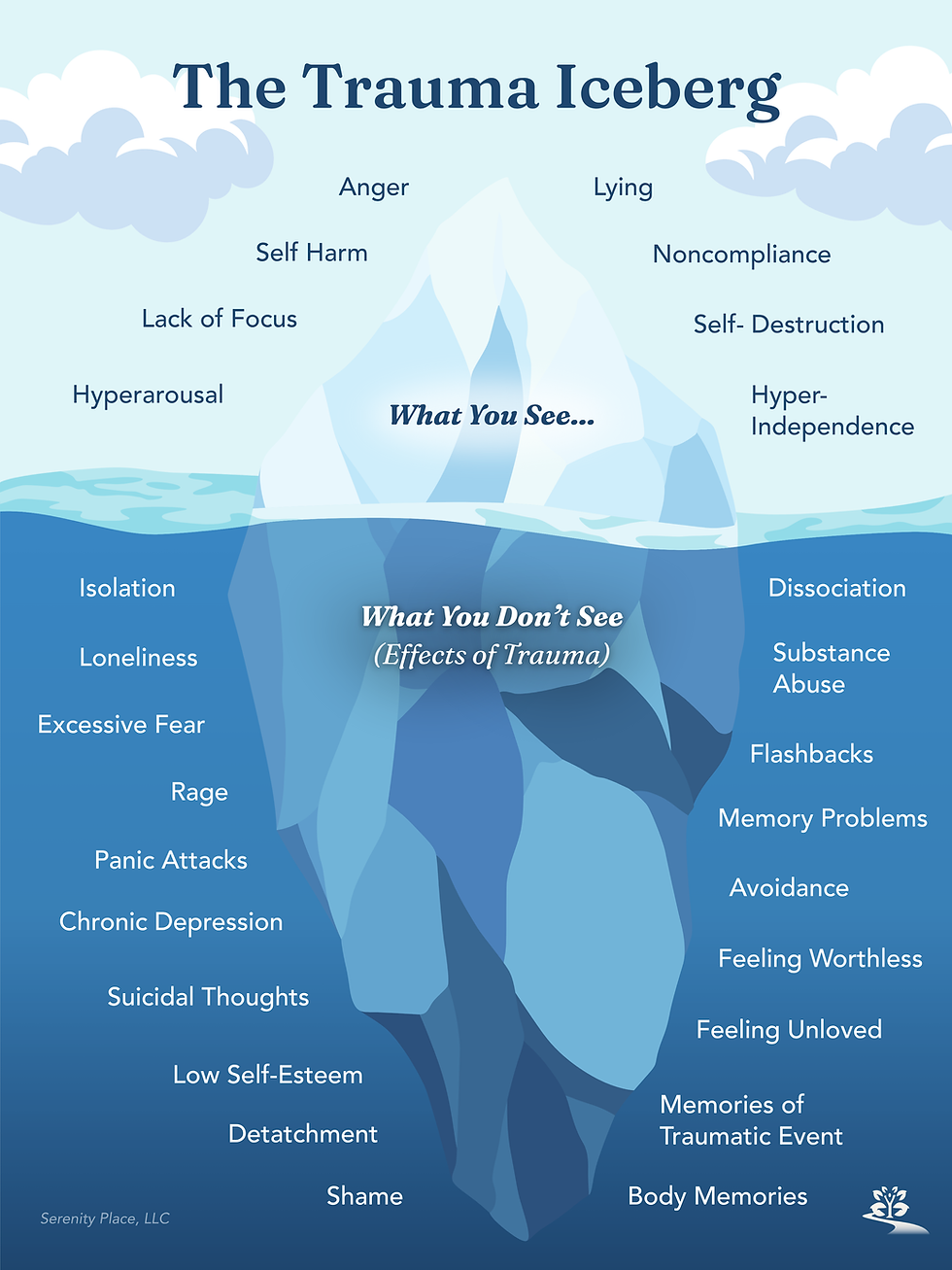Trauma
- Esther Vanderwal

- Mar 3, 2017
- 3 min read
Updated: Jul 15, 2025
“There are so many fragile things, after all. People break so easily, and so do dreams and hearts.” – Neil Gaiman
When I heard this quote it brought to mind how trauma affects and even changes people. Humans truly are fragile and can break; I believe we sometimes forget that fact. Our minds can only take so much, before there is a breaking point. Some see dealing with mental health issues as a sign of weakness; I see it differently. Trauma can happen to any of us and we carry it with us. Sometimes, it can lead to changes in us, in ways we did not want. Perhaps, we are now anxious or depressed. Perhaps, we now startle easily or have fears that we didn’t have before. Trauma and it’s effects, manifest in people through anxiety, depression or physical ailments.
Recently, in the world of mental health professionals, trauma has taken a front stage. Now, we even have a platform called “Trauma-Informed Care.” Essentially, this suggests treating people with respect through consideration for what they have been through, so as not to create further hurt.
We think of this information as new, yet many parts of the concepts are very old. This realization hit me when my son was reading, “To Kill a Mockingbird.” I have read the book before, though it’s been quite some time – after all, the book was written in the 1960’s. Through his reading it and talking it over with me, it prompted many conversations between the two of us.
There is one character in the book that is pre-judged and said to be a monster. By the end of the book, the perception of the character has changed. The other characters start to see him as a human, not a monster, and one that has gone through much trauma. It reminds me of how mental health professionals are being taught to approach people now, with the mindset “what have you been through?” rather than, “what’s wrong with you? “
In the book, the change in everyone’s perception of the character so many considered a monster, did not occur because the man changed. Instead, the change was in the people, who were pre-judging. They began to ask more questions, which lead to them being more sensitive and responsive towards him. Suddenly, the view of this character changed.
You see, trauma can leave its mark on us years after the event has taken place. Sometimes, you don’t even notice the subtle changes in yourself. When a person experiences trauma, the body quickly shuts down certain parts of us and pushes other parts into high alert. This is one of the primitive mechanisms for staying alive. The part of our brain that makes rational decisions suddenly, becomes limited and the part of the brain that pushes for self-preservation, is at full throttle. Imagine the last time you were scared. What did your body do? Can you remember how you might have stiffened and began looking for ways out? Perhaps, you had an adrenaline rush and were quickly scanning for danger or felt hyper alert.
Imagine if that reaction were to become stuck. What if your body did not go back to it’s normal state, but continued in this fight-or-flight position? How might you react to ordinary conversations? Do you think you’d be perpetually on the defensive, continuously on the lookout for danger?
What I have found, is we really are fragile. Given the right circumstances, anyone could be left struggling. If you have found yourself being short tempered, quick to draw negative conclusions, and have experienced trauma in the past – you are ready to seek support, please call for an appointment. If you know someone who may have experienced trauma and you have pre-judged him or her, try being sensitive to what they may have experienced in life. You might find that your own perception changes.




Comments